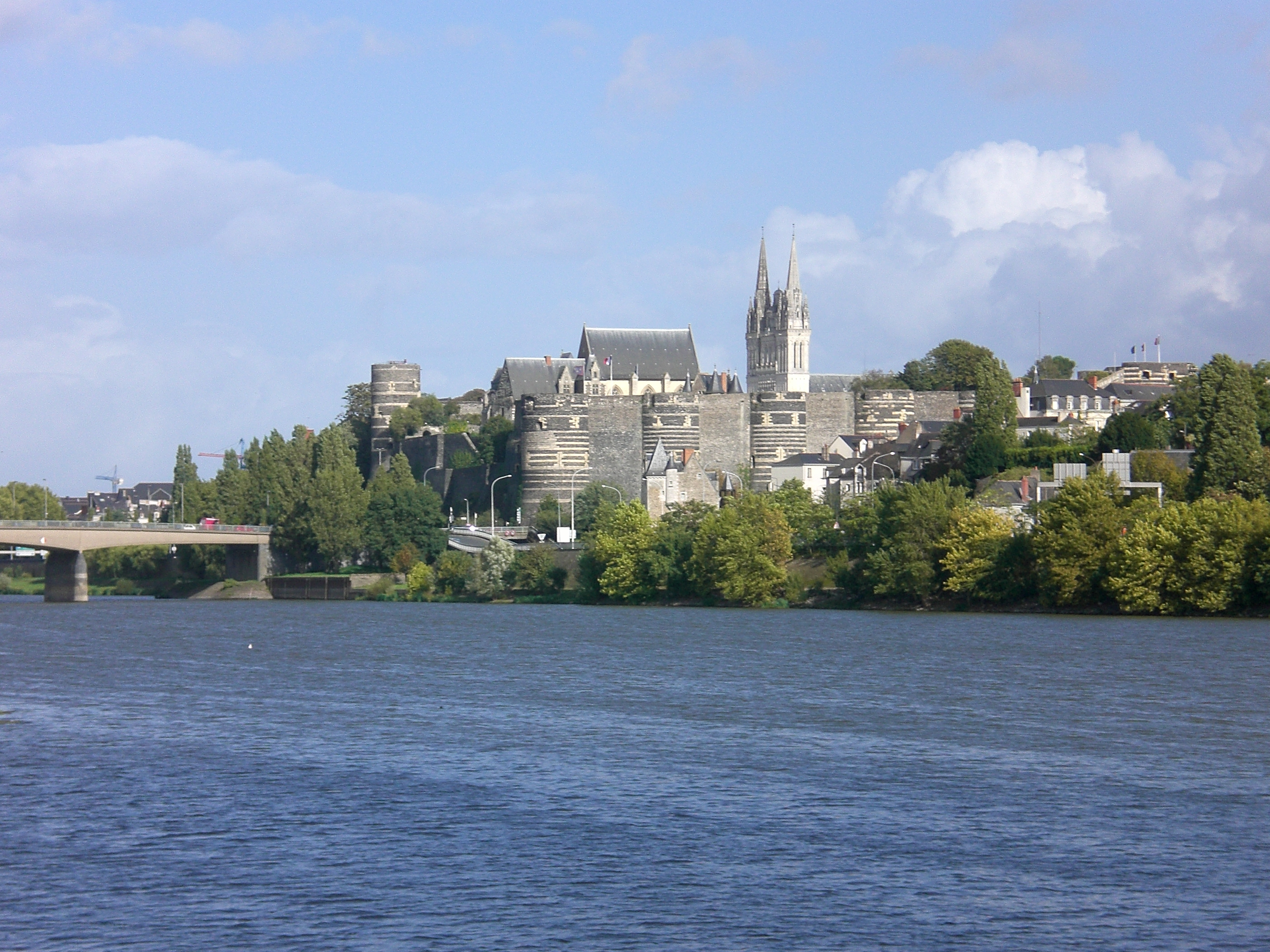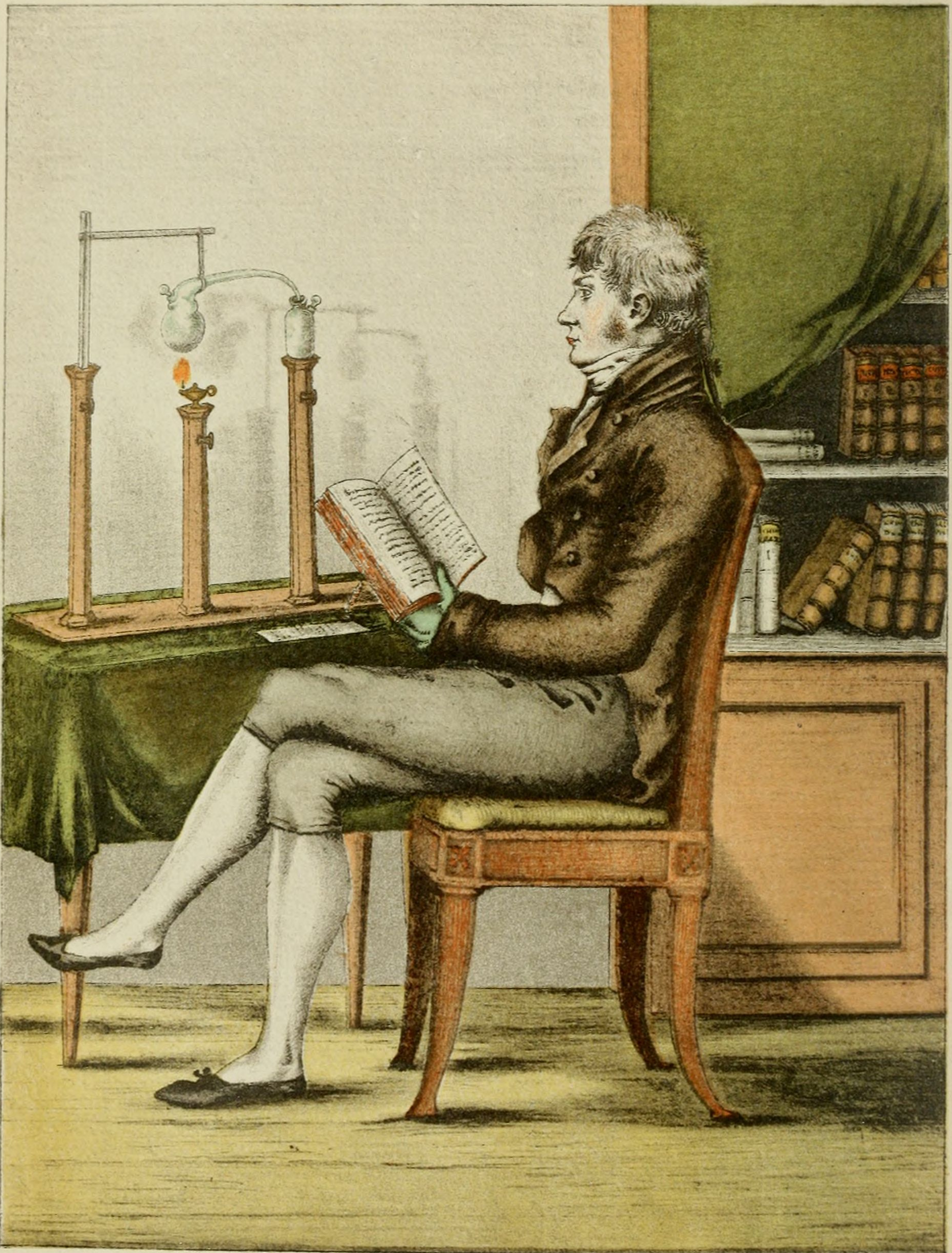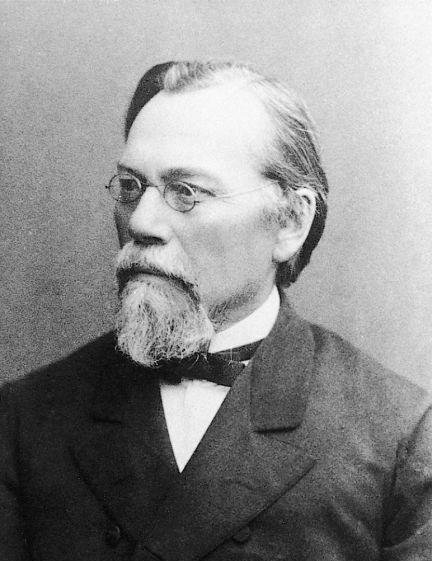|
Joseph Proust
Joseph Louis Proust (26 September 1754 – 5 July 1826) was a French people, French chemist. He was best known for his discovery of the law of definite proportions in 1797, stating that chemical compounds always combine in constant proportions. Life Joseph-Louis Proust was born on 26 September 1754 in Angers, France. His father served as an apothecary in Angers. Joseph studied chemistry in his father's shop and later went to Paris where he gained the appointment of apothecary in chief to the Pitié-Salpêtrière Hospital, Salpêtrière. He also taught chemistry with Pilâtre de Rozier, a famous aeronaut. Under Carlos IV's influence Proust went to Spain. There he taught at the Chemistry School in Segovia and at the University of Salamanca. But when Napoleon invaded Spain, they burned Proust's laboratory and forced him back to France. On 5 July 1826 he died in Angers, France. The mineral proustite (Ag3AsS3) is named in his honour. Chemistry studies Proust's largest accomplishment ... [...More Info...] [...Related Items...] OR: [Wikipedia] [Google] [Baidu] |
Angers
Angers (, , ;) is a city in western France, about southwest of Paris. It is the Prefectures of France, prefecture of the Maine-et-Loire department and was the capital of the province of Duchy of Anjou, Anjou until the French Revolution. The inhabitants of both the city and the province are called ''Angevins'' or, more rarely, ''Angeriens''. Angers proper covers and has a population of 154,508 inhabitants, while around 432,900 live in its metropolitan area (''aire d'attraction''). The Communauté urbaine Angers Loire Métropole, Angers Loire Métropole is made up of 29 communes covering with 299,500 inhabitants (2018).Comparateur de territoire INSEE Not including the broader metropolitan area, Angers is the third most populous Communes of France, commune in northwes ... [...More Info...] [...Related Items...] OR: [Wikipedia] [Google] [Baidu] |
Jöns Jacob Berzelius
Baron Jöns Jacob Berzelius (; 20 August 1779 – 7 August 1848) was a Swedish chemist. Berzelius is considered, along with Robert Boyle, John Dalton, and Antoine Lavoisier, to be one of the founders of modern chemistry. Berzelius became a member of the Royal Swedish Academy of Sciences in 1808 and served from 1818 as its principal functionary. He is known in Sweden as the "Father of Swedish Chemistry". During his lifetime he did not customarily use his first given name, and was universally known simply as Jacob Berzelius. Although Berzelius began his career as a physician, his enduring contributions were in the fields of electrochemistry, chemical bonding and stoichiometry. In particular, he is noted for his determination of atomic weights and his experiments that led to a more complete understanding of the principles of stoichiometry, which is the branch of chemistry pertaining to the quantitative relationships between elements in chemical compounds and chemical reactions and ... [...More Info...] [...Related Items...] OR: [Wikipedia] [Google] [Baidu] |
Academic Staff Of The University Of Salamanca
An academy (Attic Greek: Ἀκαδήμεια; Koine Greek Ἀκαδημία) is an institution of tertiary education. The name traces back to Plato's school of philosophy, founded approximately 386 BC at Akademia, a sanctuary of Athena, the goddess of wisdom and Skills, skill, north of Ancient Athens, Athens, Greece. The Royal Spanish Academy defines academy as scientific, literary or artistic society established with public authority and as a teaching establishment, public or private, of a professional, artistic, technical or simply practical nature. Etymology The word comes from the ''Academy'' in ancient Greece, which derives from the Athenian hero, ''Akademos''. Outside the city walls of Athens, the Gymnasium (ancient Greece), gymnasium was made famous by Plato as a center of learning. The sacred space, dedicated to the goddess of wisdom, Athena, had formerly been an olive Grove (nature), grove, hence the expression "the groves of Academe". In these gardens, the philos ... [...More Info...] [...Related Items...] OR: [Wikipedia] [Google] [Baidu] |
Members Of The French Academy Of Sciences
Member may refer to: * Military jury, referred to as "Members" in military jargon * Element (mathematics), an object that belongs to a mathematical set * In object-oriented programming, a member of a class ** Field (computer science) In data hierarchy, a field (data field) is a Variable (computer science), variable in a record (computer science), record. A record, also known as a data structure, allows logically related data to be identified by a single name. Identifying relate ..., entries in a database ** Member variable, a variable that is associated with a specific object * Limb (anatomy), an appendage of the human or animal body ** Euphemism for penis * Structural component of a truss, connected by nodes * User (computing), a person making use of a computing service, especially on the Internet * Member (geology), a component of a geological formation * Member of parliament * The Members, a British punk rock band * Meronymy, a semantic relationship in linguistics * C ... [...More Info...] [...Related Items...] OR: [Wikipedia] [Google] [Baidu] |
Flight Altitude Record Holders
Flight or flying is the motion of an object through an atmosphere, or through the vacuum of space, without contacting any planetary surface. This can be achieved by generating aerodynamic lift associated with gliding or propulsive thrust, aerostatically using buoyancy, or by ballistic movement. Many things can fly, from animal aviators such as birds, bats and insects, to natural gliders/parachuters such as patagial animals, anemochorous seeds and ballistospores, to human inventions like aircraft (airplanes, helicopters, airships, balloons, etc.) and rockets which may propel spacecraft and spaceplanes. The engineering aspects of flight are the purview of aerospace engineering which is subdivided into aeronautics, the study of vehicles that travel through the atmosphere, and astronautics, the study of vehicles that travel through space, and ballistics, the study of the flight of projectiles. Types of flight Buoyant flight Humans have managed to construct lighter-than ... [...More Info...] [...Related Items...] OR: [Wikipedia] [Google] [Baidu] |
People From Angers
The term "the people" refers to the public or common mass of people of a polity. As such it is a concept of human rights law, international law as well as constitutional law, particularly used for claims of popular sovereignty. In contrast, a people is any plurality of persons considered as a whole. Used in politics and law, the term "a people" refers to the collective or community of an ethnic group or nation. Concepts Legal Chapter One, Article One of the Charter of the United Nations states that "peoples" have the right to self-determination. Though the mere status as peoples and the right to self-determination, as for example in the case of Indigenous peoples (''peoples'', as in all groups of indigenous people, not merely all indigenous persons as in ''indigenous people''), does not automatically provide for independent sovereignty and therefore secession. Indeed, judge Ivor Jennings identified the inherent problems in the right of "peoples" to self-determination, ... [...More Info...] [...Related Items...] OR: [Wikipedia] [Google] [Baidu] |
18th-century French Chemists
The 18th century lasted from 1 January 1701 (represented by the Roman numerals MDCCI) to 31 December 1800 (MDCCC). During the 18th century, elements of Enlightenment thinking culminated in the Atlantic Revolutions. Revolutions began to challenge the legitimacy of monarchical and aristocratic power structures. The Industrial Revolution began mid-century, leading to radical changes in human society and the environment. The European colonization of the Americas and other parts of the world intensified and associated mass migrations of people grew in size as part of the Age of Sail. During the century, slave trading expanded across the shores of the Atlantic Ocean, while declining in Russia and China. Western historians have occasionally defined the 18th century otherwise for the purposes of their work. For example, the "short" 18th century may be defined as 1715–1789, denoting the period of time between the death of Louis XIV of France and the start of the French Revolut ... [...More Info...] [...Related Items...] OR: [Wikipedia] [Google] [Baidu] |
1826 Deaths
Events January–March * January 15 – The French newspaper ''Le Figaro'' begins publication in Paris, initially as a satirical weekly. * January 17 – The John Ballantyne (publisher), Ballantyne printing business in Edinburgh (Scotland) crashes, ruining novelist Sir Walter Scott as a principal investor. He undertakes to repay his creditors from his writings. His publisher, Archibald Constable, also fails. * January 18 – In India, the Siege of Bharatpur (1825–1826), Siege of Bharatpur ends in British victory as Stapleton Cotton, 1st Viscount Combermere, Lord Combermere and Michael Childers defeat the Bharatpur State, princely state of Bharatpur, now part of the Indian state of Rajasthan. * January 30 – The Menai Suspension Bridge, built by engineer Thomas Telford as the first major suspension bridge in world history, is opened between the island of Anglesey and the mainland of Wales. * February 6 – James Fenimore Cooper's novel ''The Last of the Mohicans'' is ... [...More Info...] [...Related Items...] OR: [Wikipedia] [Google] [Baidu] |
1754 Births
Events January–March * January 28 – Horace Walpole, in a letter to Horace Mann, coins the word ''serendipity''. * February 22 – Expecting an attack by Portuguese-speaking militias in the Viceroyalty of the Río de la Plata, the indigenous Guarani people residing in the Misiones Orientales stage an attack on a small Brazilian Portuguese settlement on the Rio Pardo in what is now the Brazilian state of Rio Grande do Sul. The attack by 300 Guarani soldiers from the missions at San Luis, San Lorenzo and San Juan Bautista is repelled with a loss of 30 Guarani and is the opening of the Guarani War * February 25 – Guatemalan Sergeant Major Melchor de Mencos y Varón departs the city of Santiago de los Caballeros de Guatemala with an infantry battalion to fight British pirates that are reportedly disembarking on the coasts of Petén (modern-day Belize), and sacking the nearby towns. * March 16 – Ten days after the death of British Prime Minister He ... [...More Info...] [...Related Items...] OR: [Wikipedia] [Google] [Baidu] |
Honey
Honey is a sweet and viscous substance made by several species of bees, the best-known of which are honey bees. Honey is made and stored to nourish bee colonies. Bees produce honey by gathering and then refining the sugary secretions of plants (primarily floral nectar) or the secretions of other insects, like the honeydew of aphids. This refinement takes place both within individual bees, through regurgitation and enzymatic activity, and during storage in the hive, through water evaporation that concentrates the honey's sugars until it is thick and viscous. Honey bees stockpile honey in the hive. Within the hive is a structure made from wax called honeycomb. The honeycomb is made up of hundreds or thousands of hexagonal cells, into which the bees regurgitate honey for storage. Other honey-producing species of bee store the substance in different structures, such as the pots made of wax and resin used by the stingless bee. Honey for human consumption is collected ... [...More Info...] [...Related Items...] OR: [Wikipedia] [Google] [Baidu] |
Grapes
A grape is a fruit, botanically a berry, of the deciduous woody vines of the flowering plant genus ''Vitis''. Grapes are a non- climacteric type of fruit, generally occurring in clusters. The cultivation of grapes began approximately 8,000 years ago, and the fruit has been used as human food throughout its history. Eaten fresh or in dried form (as raisins, currants and sultanas), grapes also hold cultural significance in many parts of the world, particularly for their role in winemaking. Other grape-derived products include various types of jam, juice, vinegar and oil. History The Middle East is generally described as the homeland of grapes and the cultivation of this plant began there 6,000–8,000 years ago. Yeast, one of the earliest domesticated microorganisms, occurs naturally on the skins of grapes, leading to the discovery of alcoholic drinks such as wine. The earliest archeological evidence for a dominant position of wine-making in human culture dates from ... [...More Info...] [...Related Items...] OR: [Wikipedia] [Google] [Baidu] |
Madrid
Madrid ( ; ) is the capital and List of largest cities in Spain, most populous municipality of Spain. It has almost 3.5 million inhabitants and a Madrid metropolitan area, metropolitan area population of approximately 7 million. It is the Largest cities of the European Union by population within city limits, second-largest city in the European Union (EU), and its wikt:monocentric, monocentric Madrid metropolitan area, metropolitan area is the List of metropolitan areas in Europe by population, second-largest in the EU.United Nations Department of Economic and Social AffairWorld Urbanization Prospects (2007 revision), (United Nations, 2008), Table A.12. Data for 2007. The municipality covers geographical area. Madrid lies on the Manzanares (river), River Manzanares in the central part of the Iberian Peninsula at about above mean sea level. The capital city of both Spain and the surrounding Community of Madrid, autonomous community of Madrid (since 1983), it is also th ... [...More Info...] [...Related Items...] OR: [Wikipedia] [Google] [Baidu] |





